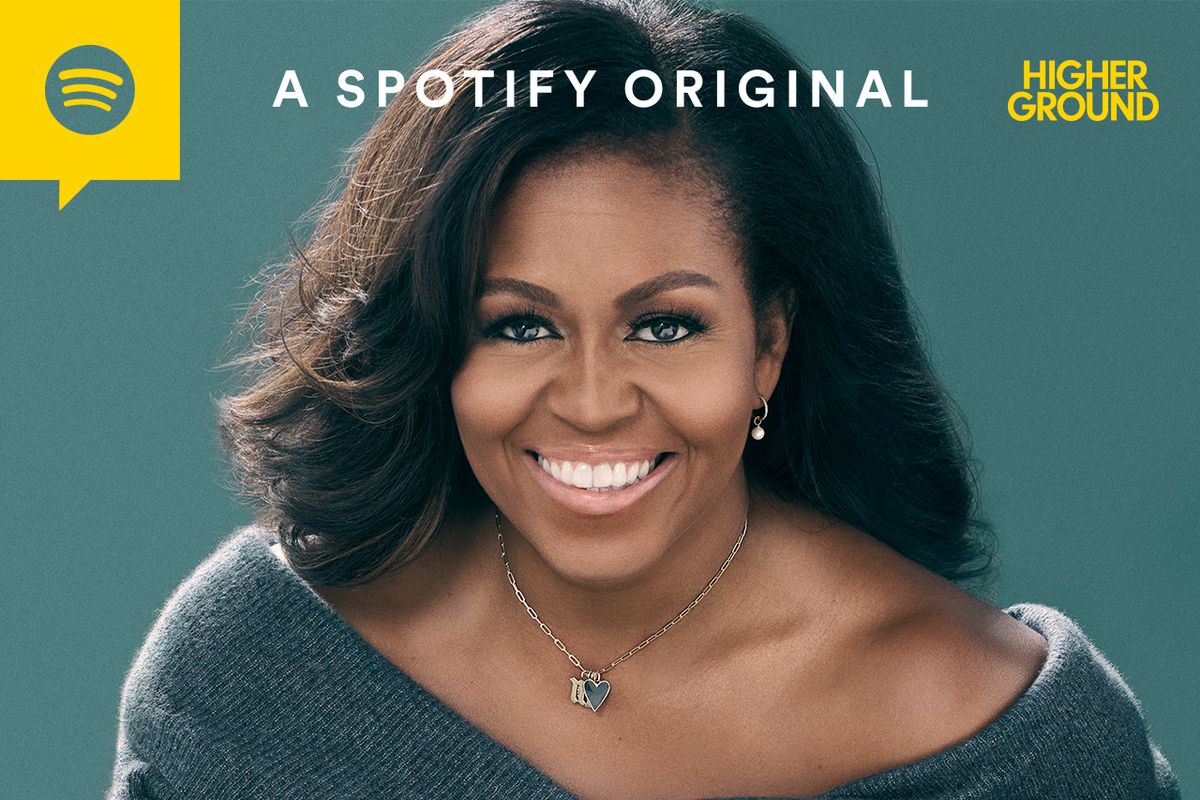Partnering with Spotify’s Higher Ground Podcast, The Michelle Obama Podcast debuted on July 29, where the former First Lady discussed relevant topics encompassing the drastic shift after ending her eight-year White House tenure. Mrs. Obama vicariously takes her listeners into her own home and life, unveiling the curtain of the trials and tribulations accompanied by growing up an African American woman in the South Side Chicago area. She also reminisces about her upbringing and life in hopes of empowering youth and adults with similar contentions. Other topics included the juxtaposition of classism and racism both in the 1970s and 1980s and in present-day society.
The first episode featured a special guest, her husband and former President of the United States, Barack Obama. Together, in their well known affable, affectionate, tender, and congenial manner relay important aspects of their respective lives. Topics of concurrence included their distinct upbringings in terms of nuclear families, values, dysfunctionality, and poverty. These aspects of their lives not only shaped them in terms of who they are as individuals but also contributed to their growth as the nation’s leaders.
President Obama candidly reveals that while his family wasn’t the conventional mother, father, daughter, and son, there was unconditional love and support from his mother and grandparents. Nevertheless, he emphasized the notion of childhood friends and acquaintances becoming an integral part of a family unit. He mentions some of his longtime friends by name and confesses that “all of them were akin to a crew; they came from broken homes, studying in predominantly Anglo-Saxon elitist schools.” Thus, President Obama and his friends turned to each other for support both morally and academically. This notion remains especially prevalent today. Families with a socioeconomic disadvantage still seek out to send their children to better quality schools. Oftentimes, minority groups are at a disadvantage, becoming ostracized for their identity. Events like these evoke empathy within youth communities that face daily struggles to succeed and embark on a journey of wealth and success.
Michelle Obama also discusses the idea of suburbs in terms of “White Flight,” this notion of the White American ideal that everyone should live in a spacious home in a white-centered community that disregards and un-welcomes minority groups. She contends that her father remained skeptical and wary of suburbs, granted that they were designed to be for white folk. She briefly mentions an incident where her father’s car was scratched for the mere fact that the Robinson family was African American.
From an early age, both spouses prioritized education and communal success. It is the inherent fraternal instinct that brought these two erudite individuals together. Mrs. Obama eloquently describes and breaks apart a present-day ideal regarding young people and personal triumphs by articulating, “Success was not defined by the ability to leave your nuclear unit.” In other words, she shares that the notion of close familial ties are meant to foster love, care, and promote empowerment. Both Obamas were raised with the idea that the support of parents, relatives, community members, and friends catalyzes success. These core values were imbued in the Obama family’s life in the White House; both prioritized the virtue of public service and addressed the concern of groups rather than individuals.
This first episode ignited the fire of social nonconformity and advocacy for reform through the retelling of personal, intimate stories of their respective lives.











